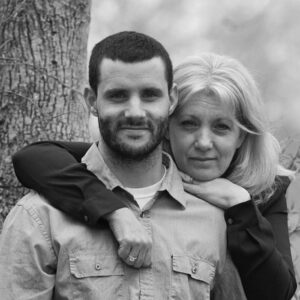[et_pb_section fb_built=”1″ _builder_version=”3.22″ custom_padding=”||0px|||”][et_pb_row _builder_version=”3.25″ background_size=”initial” background_position=”top_left” background_repeat=”repeat” custom_padding=”||0px|||”][et_pb_column type=”4_4″ _builder_version=”3.25″ custom_padding=”|||” custom_padding__hover=”|||”][et_pb_text _builder_version=”4.9.2″ background_size=”initial” background_position=”top_left” background_repeat=”repeat” hover_enabled=”0″ sticky_enabled=”0″]
” Boundaries define us. They define what is me and what is not me. A boundary shows me where I end and someone else begins, leading me to a sense of ownership. Knowing what I am to own and take responsibility for gives me freedom.” ~ Henry Cloud
This post originally appeared on our Member Site blog, where experts respond to members’ questions and concerns. To take advantage of our current special offer and get full access to the Allies in Recovery eLearning program for families, click here.
According to A Guide to Psychology and Its Practice, “A boundary is anything that marks a limit.” Personal boundaries consist of limits, rules and guidelines that keep an individual safe from the toxic and damaging behavior of others. They are messages of what conduct we will or will not tolerate.
Seems pretty cut and dry, right? Sounds like it couldn’t be easier. If I set a boundary, based on self-protection, others should and will respect my limits.
Why is it then, that setting and maintaining boundaries is so difficult to do?
Nowhere does this breakdown become more apparent than when we are confronted with life’s difficulties, feeling lost in chaos and despair. This is true for me and the many families I have had the privilege to support. We’ve experienced our deepest, darkest days while trying to cope with a loved one with Substance Use Disorder (SUD). This is a time when we are most in need of these self-preserving strategies. Yet, our limit-setting abilities are likely at their weakest!
I often write of my experiences coping with a loved one with SUD. But I have found that much of what I have learned can be applied to all aspects of my relationships, including setting personal boundaries. In fact, I have become more confident in my ability to take care of myself, while still having compassion and respect for others. Of course, there are always exceptions to the rule. But most everyone I speak with finds that determining, setting and upholding healthy boundaries are some of the most essential yet difficult protective mechanisms to implement.
***
It was critical in my learning process to identify what was driving my boundary setting and why it wasn’t working.
How can a person improve on a weakness if they are not aware of its existence? It was also imperative to understand past experiences, feelings and emotions that contributed to my actions. I am not a professional, but based on the struggles I went through to improve my ability to set careful boundaries, and working with other families and observing their struggles, I have a few thoughts on what some of the causes are and why boundary setting is so difficult:
1. We were not taught how to set personal boundaries when we were growing up, or maybe setting strong personal limits backfired, making us vulnerable to even more extreme abuse.
Creating personal boundaries when there is emotional or physical abuse by an adult can be tricky because of our inability to control the situation and enforce our limits. This might inspire a brutal response from the abuser, forcing us to learn to manipulate as a self-saving strategy. We might thus lie and hide our actions as a protective tactic and carry this learned behavior into adulthood.
2. We may view our loved one as not being able to live up to the boundaries we set.
Maybe we see our loved one as too sick or weak, or fear that they could ultimately be damaged by our boundaries. For example, a loved one may suffer co-occurring disorders with SUD like mental illness. We might believe that it is more difficult or even impossible for them live up to our standards. Not setting personal limits for these reasons insinuates that my loved one needs me to do things for him/her. It helps make our loved one dependent on us and can lead them to feelings of helplessness.
3. This is a BIGGIE, and a barrier I myself have had to work to overcome: the FEAR of what a loved one might do in response to boundary setting.
For those of us dealing with SUD, FEAR is an immense obstacle to overcome. I call it the Ultimate Fear: almost unique to SUD, the fear that our loved one will not comply with our boundaries but instead will go and use. The possibility of use opens the floodgates of terror: they could overdose and among other serious consequences, could die. Once our loved one learns that this is our weakness, they inevitably use it against us. They learn to manipulate us so we will not stay firm in our boundaries. Moms and dads have told me their sons or daughters have demanded cigarettes, money, food, rides, and made many other requests, threatening to use again if their parents do not provide. Worrying, and trying to prevent them from returning to use, drives us from making logical healthy decisions.
4. Sometimes we are just so lost in our own emotional and mental anguish that we can barely make it out of bed and face the day.
Drumming up the mental capacity to determine and set confident, realistic boundaries can feel impossible. I am not talking about self-centered, feel-sorry-for-myself, pity. I am referring to the repeated shock and mind/body changing anguish that can paralyze a person into action. Fortunately and unfortunately, we cannot allow ourselves to stay there. After months of no mental improvement, I had to put the work in to make my life better for myself, for my struggling loved one, and for all of the other people (those we often take for granted or neglect) I am blessed to have my life. Truthfully, it does not have to be an earth-moving change; just a little shovelful at a time will yield positive results.
Take the time to dig deep and identify the forces within you that may be a barrier to creating healthy boundaries. Are you able to identify with any of the categories listed above, or is there something else?
*Next week, read part 2, in which I suggest guidelines for setting effective boundaries.
Since 2003, Allies in Recovery has addressed substance abuse in families by providing a method for the family to change the conversation about addiction. We use Community Reinforcement & Family Training (CRAFT), a proven approach that helps the family unblock and advance the relationship towards sobriety and recovery and to engage a loved one into treatment. Learn about member benefits by following this link.
[/et_pb_text][/et_pb_column][/et_pb_row][/et_pb_section]



